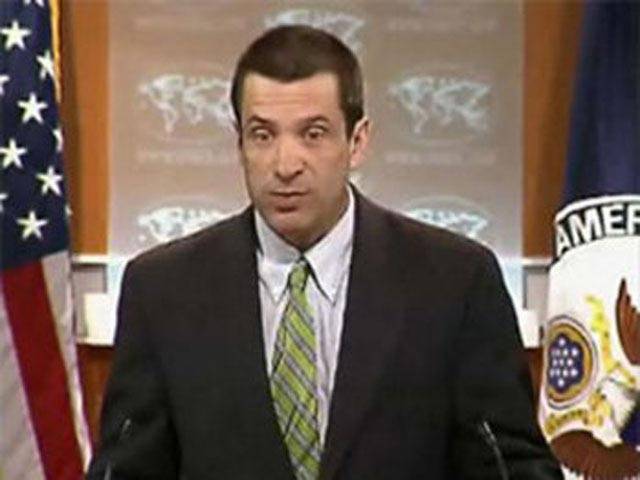As a defiant Lashkar-e-Taiba chief Hafiz Mohammed Saeed challenged the United States to prove charges against him, Washington clarified its offer of $10 million bounty was not for finding him, but for information leading to his arrest and conviction.
"Just to clarify, the $10 million is for information not about his location, but information that leads to an arrest or conviction," state department spokesman Mark Toner told reporters on Wednesday.
"And this is information that could withstand judicial scrutiny, so I think what's important here is we're not seeking this guy's location. We all know where he is," he said when asked about the rationale of the reward.
Asked if he was suggesting that there is no information available to prosecute Saeed, Toner said: "There is information, there is intelligence that is not necessarily usable in a court of law."
The spokesman suggested that the timing of the reward offer had "nothing to do with the ongoing parliamentary review" in Pakistan about relations with the US following the US military raid that killed Osama bin Laden last May and the mistaken killing of 24 Pakistani troops during a NATO strike last November.
"This is about a process in and of itself, separate and apart from our ongoing bilateral relations with Pakistan," Toner said.
"It does, however, speak to the fact that we are in a shared struggle here and that individuals like this gentleman, Hafiz Saeed, are a threat to the region."
Denying that the move was intended to put pressure on the Pakistanis, he said, "We have very close counterterrorism cooperation with Pakistan, apart from our recent difficulties in the broader relationship.
"This is not to put pressure on any one government, but we wanted to be able to provide Pakistan with the tools that they need to prosecute this individual," Toner said.
Asked if the announcement ahead of Pakistan president Asif Ali Zardari's private visit to India would move the narrative back to the anti-militant fight and cooperation, Toner said it was for the governments of India and Pakistan to say what they would discuss.
"But we want to see, obviously, ever closer counterterrorism cooperation. It's to everyone's interests."
Friday, April 19, 2024
Bounty for Hafiz Saeed to get information leading to arrest or conviction: US

12:00 PM | April 19, 2024
Minister reviews naan, roti prices
April 19, 2024
ETPB land worth Rs 40b retrieved so far
April 19, 2024
Lahore revamping plan to complete by June 30
April 19, 2024
CCPO reviews security for by-elections, NZ cricket matches
April 19, 2024
A Tense Neighbourhood
April 19, 2024
Dubai Underwater
April 19, 2024
X Debate Continues
April 19, 2024
Hepatitis Challenge
April 18, 2024
IMF Predictions
April 18, 2024
Kite tragedy
April 19, 2024
Discipline dilemma
April 19, 2024
Urgent plea
April 19, 2024
Justice denied
April 18, 2024
AI dilemmas unveiled
April 18, 2024
ePaper - Nawaiwaqt
Advertisement
Nawaiwaqt Group | Copyright © 2024





